
CRU: US, Mexico longs prices continue to rise while Brazil demand lags
US rebar and wire rod prices rose month on month (m/m) alongside continued scrap increases, while merchant bar and structurals were unchanged.

US rebar and wire rod prices rose month on month (m/m) alongside continued scrap increases, while merchant bar and structurals were unchanged.

US steel imports have fallen sharply under the new 50% Section 232 tariff regime. Jerry Richardson, general director of CSN LLC, discussed on an SMU Community Chat this week how the market is now structurally tighter and more volatile than at any point in the past decade.

CSN LLC General Director Jerry Richardson will join Steel Market Update (SMU) for a Community Chat on Wednesday, Jan. 21, at 11 am ET.

We’ve got some exciting announcements to make about the Tampa Steel Conference, which is now less than a month away! First, I’m very happy to say that Worthington Steel President and CEO Geoff Gilmore will be joining Kloeckner Metals CEO John Ganem on the stage for a fireside chat with my colleague David Schollaert.
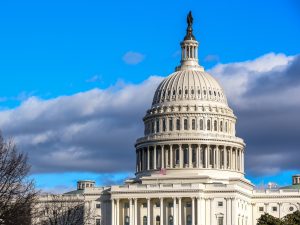
Members of the Congressional Steel Caucus met in Washington on Wednesday to assess the state of the domestic steel industry. Lawmakers and industry leaders discussed the importance of Section 232 tariffs, strong trade enforcement, and continued investment in American steelmaking.

CSN LLC General Director Jerry Richardson will join Steel Market Update (SMU) for a Community Chat on Weds., Jan. 21, at 11 am ET.

As we move into 2026, it’s time to look forward. While the “Donroe Doctrine,” Venezuela, and Greenland absorb significant press attention, important trade developments will also continue to make headlines this year. The unprecedented changes we saw in 2025 will continue in 2026, particularly in the areas of IEEPA and tariffs, USMCA, and the WTO.

Growth remains uneven, and capital continues to concentrate. But compared to the rest of the world (RoW), the US continues to have the most stable path forward.

US Congressmen Mike Kelly (R-Pa.) and Chris Deluzio (D-Pa.) have introduced the Strengthening Trade Enforcement and Evasion Limitations Act (STEEL Act) into the House of Representatives. The bipartisan bill aims to curb unfairly traded imports and strengthen US trade enforcement.

The Pennsylvania Commonwealth Court has sided with Wheatland Tube, a Zekelman Industries company, in a landmark trade ruling that bars public agencies and contractors in the state from using Mexican-made steel conduit in state-funded projects.
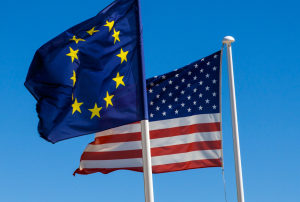
The Coalition for a Prosperous America (CPA) is urging the Trump administration to keep Section 232 steel and aluminum measures focused on rebuilding US capacity, rather than using them as bargaining chips in unrelated negotiations.

Wiley attorneys Alan Price and Ted Brackmeyer argue that significant changes to the USMCA and continued Section 232 tariffs on Canada and Mexico are needed to support American steelmaking.

It was only a matter of time before a shutdown happened. And, no, we aren’t talking about the federal government’s lapse in appropriations. On Oct. 9, Beijing announced a series of restrictions that will effectively shut down exports of rare earth elements, magnets, and certain downstream products vital to advanced manufacturing.
US President Donald Trump took to social media late Thursday night to announce he was canceling trade talks with Canada.

Below are some other issues that should be on your radar. Because while prices have been steady, a lot is going on when it comes to news that could impact them.
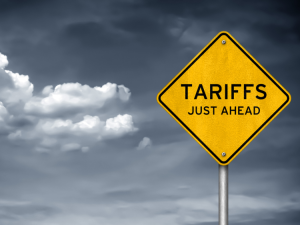
The Department of Commerce received 97 submissions from producers, manufacturers, and groups seeking Section 232 tariff coverage for steel and aluminum derivative products.
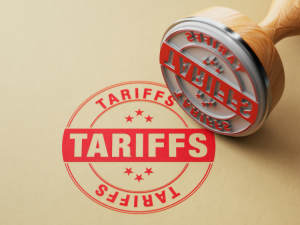
Tariffs are ultimately to blame for stagnant demand in the hot-rolled coil market, domestic market sources tell SMU.
Canadian Prime Minister Mark Carney and US President Donald Trump told reporters at the White House on Tuesday that they’ll be formulating a trade deal that works for both nations.

There is no doubt that the current government shutdown reflects the vast divisions between the extremes of American politics, society, and even geography. Almost all Americans agree that government is necessary, but voters disagree...

International trade law and policy remain a hot topic in Washington and beyond this week. We are paying special attention to the ongoing litigation of the president’s tariff policies and the administration’s efforts to heighten trade enforcement.

The US government determined this week that hot-rolled steel imports from a handful of countries continue to threaten the domestic steel industry.

Could an upcoming BRICS meeting spell trouble for President Trump's trade policy?
Barry Zekelman has a unique vantage point from which to view today’s trade landscape. A Canadian national who owns operations in both the US and Canada, he has also had dialogue with both Canadian and American administrations.
Tariff policy dominated the discussion of the SMU Steel Summit trade panel on Tuesday afternoon. The message was clear: uncertainty is rattling the steel supply chain.

The bipartisan Congressional Steel Caucus is pushing for US officials to maintain a robust Section 232 program as they negotiate trade deals with America's trading partners.
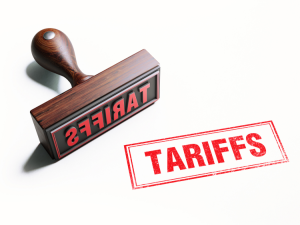
Canada has agreed to drop some retaliatory tariffs on US products, effective Sept. 1.
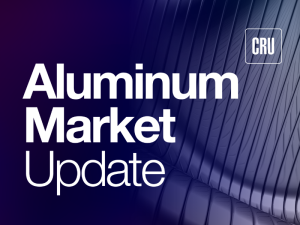
On Thursday, the U.S. and EU agreed to more concrete terms to their handshake deal of last month.
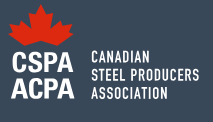
The Canadian Steel Producers Association expressed dismay upon the news that the Trump administration had added over 400 products to the list of derivative products covered by the 50% Section 232 tariffs on steel and aluminum.

The question of the new world order was on many minds last week when I spoke on another SMU Community Chat. The short answer is that nobody knows in detail what the effects of all the economic and geopolitical developments will be.

The administration continues to negotiate deals with US trading partners, and the reciprocal tariff program appears poised for further modification. This week, we focus on other important developments that may have received less media attention.